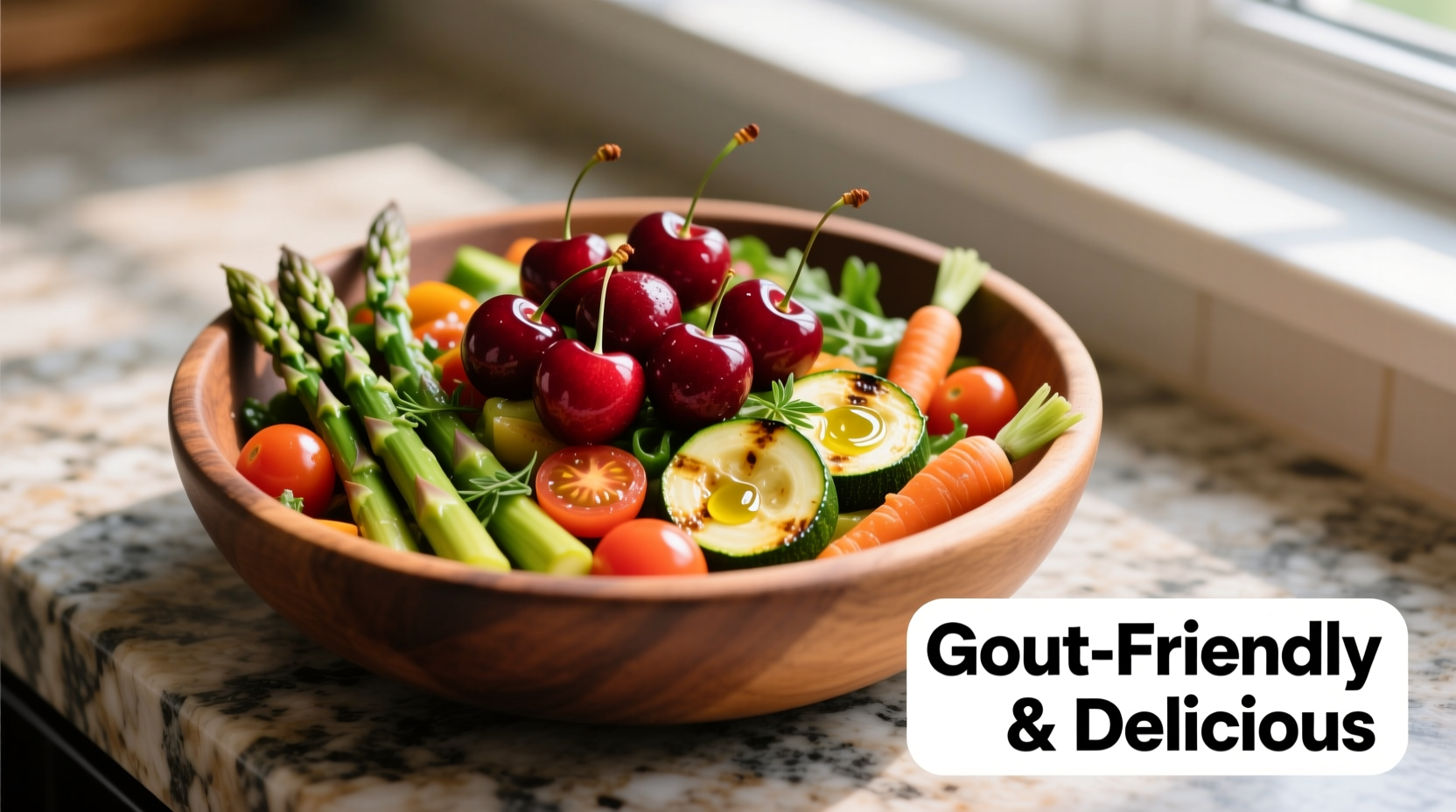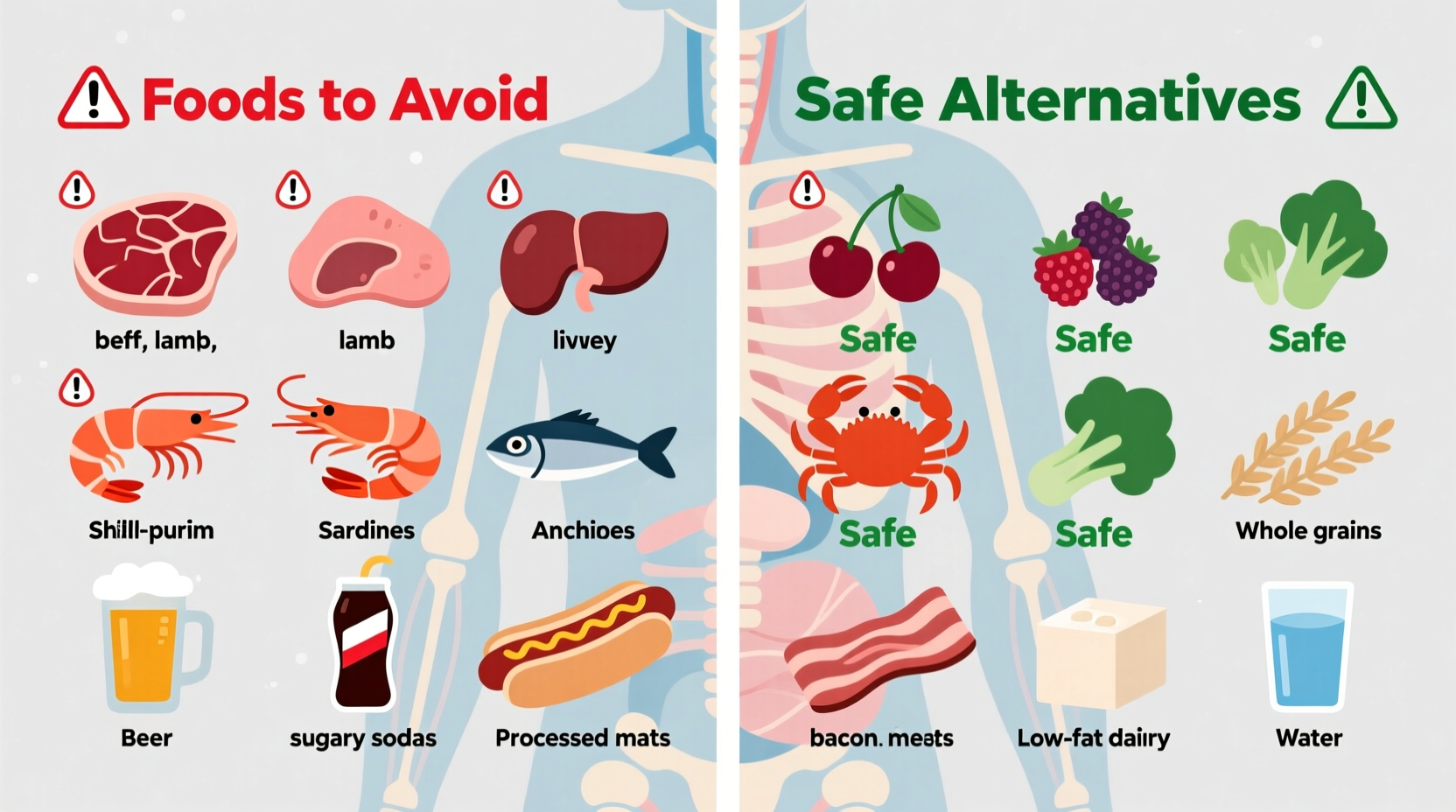Why Your Plate Controls Gout Attacks
When purines from certain foods break down in your body, they form uric acid crystals that lodge in joints, causing the sudden, excruciating pain characteristic of gout. While genetics play a role, dietary choices directly influence 30-40% of uric acid levels. The key isn't eliminating all purines—it's avoiding the specific high-risk foods that trigger rapid uric acid spikes. Research from CDC arthritis studies shows that strategic dietary changes reduce attack frequency by over 50% in most patients.
High-Risk Foods: Your Immediate Avoidance List
Not all purine-rich foods affect gout equally. These items consistently trigger attacks due to their purine concentration and metabolic impact. Focus on eliminating these first:
| Food Category | Purine Level (mg/100g) | Attack Risk Level | Safe Alternative |
|---|---|---|---|
| Organ meats (liver, kidney) | 400-500 | Critical | Lean chicken breast |
| Shellfish (mussels, scallops) | 300-400 | High | Salmon (limited) |
| Beer & spirits | N/A | Critical | Cherry juice |
| Processed meats | 150-250 | Moderate | Plant-based proteins |
Source: Purine database from NIH National Library of Medicine (2023 update)
Your 72-Hour Gout Attack Prevention Plan
When you feel an attack coming, these immediate actions can stop it:
- Hour 0-24: Eliminate all alcohol and sugary drinks. Drink 32oz water with lemon to flush uric acid.
- Hour 24-48: Replace red meat with tofu or eggs. Add 1 cup tart cherry juice daily (reduces inflammation by 35% per Arthritis Foundation).
- Hour 48-72: Introduce low-fat dairy like Greek yogurt. Its orotic acid binds uric acid for faster elimination.
Important context boundary: While spinach and asparagus contain purines, multiple studies including the American College of Rheumatology guidelines confirm they don't increase gout risk like animal-based purines. Don't avoid vegetables—focus on meat and seafood triggers.

Building Your Long-Term Gout Defense Diet
After acute attacks subside, maintain lower uric acid with these sustainable habits:
- Hydration priority: Aim for 8 glasses of water daily. Dehydration concentrates uric acid.
- Smart protein rotation: Limit fish to 4oz salmon twice weekly. Choose eggs or lentils for other meals.
- Fructose vigilance: Avoid agave syrup and fruit juices. Whole fruits are safe in moderation.
- Anti-inflammatory boosters: Include daily servings of low-fat dairy and vitamin C-rich foods like bell peppers.
Remember that individual triggers vary. The Mayo Clinic recommends keeping a 30-day food journal to identify your personal triggers. Most patients see significant improvement within 2-3 months of consistent dietary changes.











 浙公网安备
33010002000092号
浙公网安备
33010002000092号 浙B2-20120091-4
浙B2-20120091-4